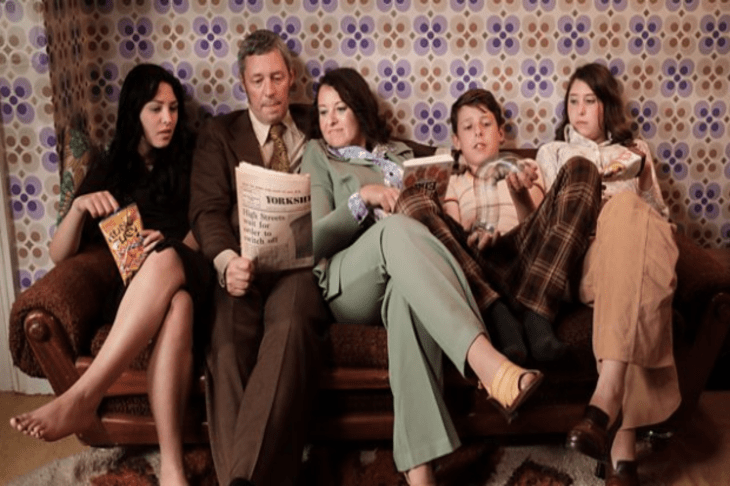Why does almost every BBC programme have to turn into lefty propaganda? For the past few Tuesday nights, there has been a reality TV show on BBC2 called Back in Time for Tea, featuring a Bradford family whose house is transformed into a time capsule – they have ate, slept, worked and entertained themselves one decade of the 20th century at a time. It was a rather good programme for the first few episodes, showing them grappling with old technology and having to eat period food which, in one or two cases, left them bewildered as to how anyone could possible consume such stuff. It was also rather educational – it didn’t occur to me that the refrigerator, something which I always took for granted, only reached 50 per cent penetration of British homes in 1967, the year after I was born.
But then, yesterday, came the episode relating to the 1980s. What was coming was clear from the tweet that the presenter, DJ Sara Cox, sent out beforehand, saying:
It all contrasted somewhat with the 1970s when the family seemed to manage to get through a decade of rising unemployment and strikes without any financial harm – just a jolly evening making their own candles to cope with a power cut during the three day week. The programme got worse. Then came the 1985 Bradford football club fire and the father was shown reading a leader from the Sunday Times talking of the dire state of English football, in particular describing football fans as ‘slum people’. This was taken utterly out of context – ignoring the hooliganism of the time (this was also the month of the Heysel disaster, in which a wall collapsed after Liverpool supporters charged rival fans at the European cup final, killing 39 supporters and leading to English clubs being banned from European football). The attempt to portray northerners as victims of a callous government also overlooked the fact that Thatcher immediately travelled to Bradford after the fire disaster and set up an inquiry which led – admittedly after another disaster, at Hillsborough in 1989 – to all-seater stadiums and the transformation of English football.
The whole purpose of the show became clear: to try to make out that the north boomed whenever Labour was in power, only for northerners to be reduced to near-starvation under the Tories. Yet another day’s work for the BBC, in other words.







Comments